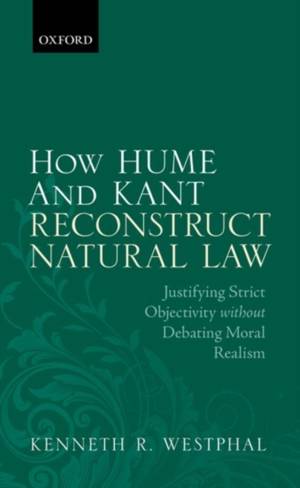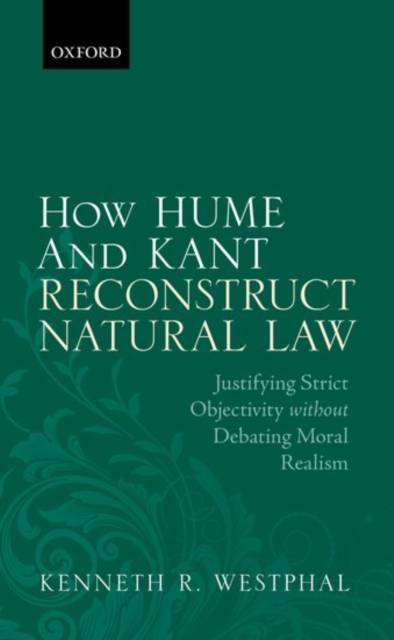
Bedankt voor het vertrouwen het afgelopen jaar! Om jou te bedanken bieden we GRATIS verzending (in België) aan op alles gedurende de hele maand januari.
- Afhalen na 1 uur in een winkel met voorraad
- Gratis thuislevering in België
- Ruim aanbod met 7 miljoen producten
Bedankt voor het vertrouwen het afgelopen jaar! Om jou te bedanken bieden we GRATIS verzending (in België) aan op alles gedurende de hele maand januari.
- Afhalen na 1 uur in een winkel met voorraad
- Gratis thuislevering in België
- Ruim aanbod met 7 miljoen producten
Zoeken
How Hume and Kant Reconstruct Natural Law
Justifying Strict Objectivity Without Debating Moral Realism
Kenneth R Westphal
Hardcover | Engels
€ 102,45
+ 204 punten
Omschrijving
Kenneth R. Westphal presents an original interpretation of Hume's and Kant's moral philosophies, the differences between which are prominent in current philosophical accounts. Westphal argues that focussing on these differences, however, occludes a decisive, shared achievement: a distinctive constructivist method to identify basic moral principles and to justify their strict objectivity, without invoking moral realism nor moral anti-realism or irrealism. Their constructivism is based on Hume's key insight that 'though the laws of justice are artificial, they are not arbitrary'. Arbitrariness in basic moral principles is avoided by starting with fundamental problems of social coordination which concern outward behaviour and physiological needs; basic principles of justice are artificial because solving those problems does not require appeal to moral realism (nor to moral anti-realism). Instead, moral cognitivism is preserved by identifying sufficient justifying reasons, which can
be addressed to all parties, for the minimum sufficient legitimate principles and institutions required to provide and protect basic forms of social coordination (including verbal behaviour). Hume first develops this kind of constructivism for basic property rights and for government. Kant greatly refines Hume's construction of justice within his 'metaphysical principles of justice', whilst preserving the core model of Hume's innovative constructivism. Hume's and Kant's constructivism avoids the conventionalist and relativist tendencies latent if not explicit in contemporary forms of moral constructivism.
be addressed to all parties, for the minimum sufficient legitimate principles and institutions required to provide and protect basic forms of social coordination (including verbal behaviour). Hume first develops this kind of constructivism for basic property rights and for government. Kant greatly refines Hume's construction of justice within his 'metaphysical principles of justice', whilst preserving the core model of Hume's innovative constructivism. Hume's and Kant's constructivism avoids the conventionalist and relativist tendencies latent if not explicit in contemporary forms of moral constructivism.
Specificaties
Betrokkenen
- Auteur(s):
- Uitgeverij:
Inhoud
- Aantal bladzijden:
- 208
- Taal:
- Engels
Eigenschappen
- Productcode (EAN):
- 9780198747055
- Verschijningsdatum:
- 24/05/2016
- Uitvoering:
- Hardcover
- Formaat:
- Genaaid
- Afmetingen:
- 218 mm x 137 mm
- Gewicht:
- 430 g

Alleen bij Standaard Boekhandel
+ 204 punten op je klantenkaart van Standaard Boekhandel
Beoordelingen
We publiceren alleen reviews die voldoen aan de voorwaarden voor reviews. Bekijk onze voorwaarden voor reviews.












